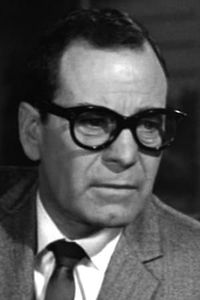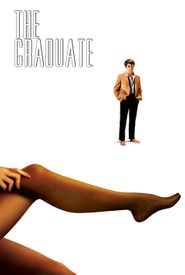Walter Brooke was born on October 13, 1914, in New York City. He spent five years in Berlin, Germany, where he won first prize for reciting a poem in German at the Grunewald gymnasium. After returning to New York, he attended Dewitt Clinton High School and launched his stage career by accident, taking a wrong turn in the school corridor which led him to a drama class.
Brooke's stage career picked up momentum with summer stock plays on Governors Island, East Hampton, and full-fledged productions. His first Broadway experience was as a walk-on and understudy in John Gielgud's production of "Hamlet" at the Empire Theater. He later went to Hollywood to study with Max Reinhardt and spent 18 months with the "Professor" appearing in classical plays and developing his acting technique.
After his return to Los Angeles, he helped found the Beachwood Studio under the direction of Vladimir Sokoloff, an original member of the Moscow Art Theater. Working with Sokoloff resulted in a notable change in his dramatic technique. Warner Brothers soon discovered him and placed him under contract, but he wasn't handsome enough to be a juvenile or old enough for young character parts.
He played a dozen parts in as many films, then by mutual consent, was released from his contract. Brooke went back to Broadway where he played the lead in "The Barber Had Two Sons". Shortly after, he was offered a job at M-G-M as the dialogue director on "Kismet" which William Dieterle was directing.
After Pearl Harbor, Brooke went into the Army and was assigned to the 776th Field Artillery Battalion. He served for 2 1/2 years, including 144 days of uninterrupted combat where his outfit slugged from the Bulge to Bastogne, to a point further east than any other similar unit. One of his overseas duties was interpreting the words of German military prisoners making use of his knowledge of the German language.
Discharged in 1946, Brooke returned to the stage on tour with Tallulah Bankhead in "The Eagle Has Two Heads". He later appeared in "Two Blind Mice" with Melvyn Douglas, "Twilight Walk" opposite Nancy Kelly, and "Seagulls Over Sorrento".
Brooke credits his biggest professional break to Franchot Tone with whom he appeared in "The Second Man." Directed by Jean Dalrymple, the play successfully toured the straw-hat circuit from Maine to Florida and California. Television's top brass saw the play and almost at once Walter jumped into starring roles on virtually all major TV shows then on the air.
During an eight-week period, he did 12 leads, appearing on four one-hour shows, and eight 30-minute programs, while at the same time playing a running part on "One Man's Family". Few actors can equal or top this record. After "One Man's Family" went off the air, he resumed free-lancing.
Brooke met his wife, Elizabeth Wragge, on a blind date at an AFTRA ball at the Waldorf-Astoria. They were married four years later on January 14th, 1951. The couple had two children, Thomas Brooke and Christina Lynne Brooke. They divided their time between a home in Elberon, N.J. and a mellow apartment, The Osborne on West 57th Street.
As time moved forward, it soon became apparent that Hollywood was the best place for Brooke to be for film and television work, so he started spending more time on the west coast and by 1960 his career as an actor looked assured so he relocated to Hollywood as his wife and children stayed in midtown Manhattan pursuing their own theatrical careers.
Brooke was an environmentalist and a Universalist. Swimming was one of his passions. In all the homes he lived in, he would create and care for a garden where he grew many types of vegetables. Picked fresh and prepared on the same day. His motto was "Each Day Will Be Better Than the Last, If You Let It".

































































































